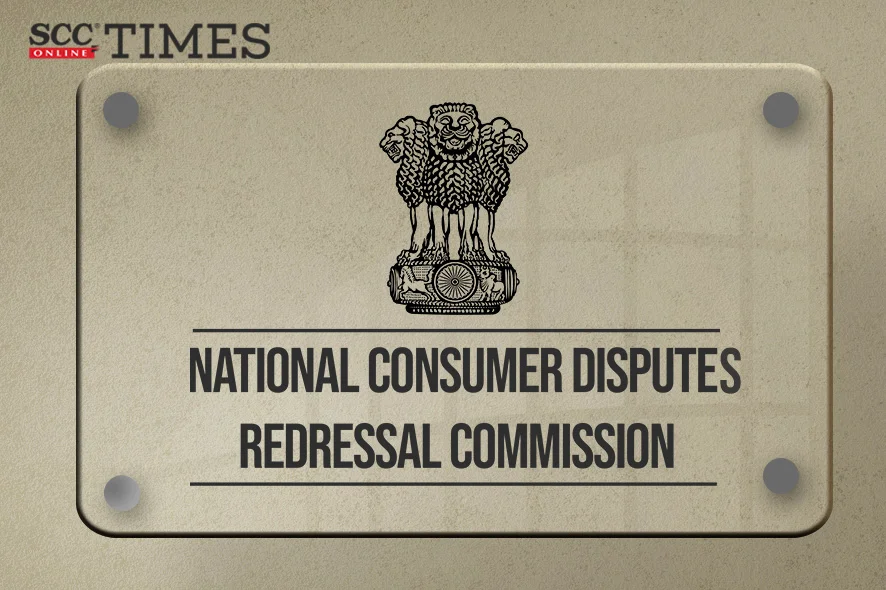National Consumer Disputes Redressal Commission (NCDRC): While considering the instant appeal wherein award of increased compensation for a railway accident was ordered by the State Consumer Disputes Redressal Commission, Telangana at Hyderabad, via the impugned order dated 19-4-2022; the Bench of Ram Surat Ram Maurya (Presiding Member) and Bharatkumar Pandya (Member), opined that, “Section 124 of the Railways Act, 1989 has an overriding effect as such the compensation is payable as provided under the Railway Accident and Untoward Incidents (Compensation) Rules, 1990”. Therefore, the SCDRC was not justified in saying that a person is entitled to more compensation, depending upon the fact of the case than the compensation as provided under the Railway Accident and Untoward Incidents (Compensation) Rules, 1990.
Background and Legal Trajectory:
The complainant, a student went to Hyderabad to attend a crash computer course and meet his relatives in May/June 2016. After spending a few days with the relatives, he purchased railway ticket for Janmbhoomi Super-Fast Express on 05-6-2016 from Secunderabad to Visakhapatnam and boarded in the general compartment of the train and occupied the window seat. When the train reached near Tipparthi Railway station, an iron bolt stuck to his left eye at a very high speed and caused a grievous injury. The complainant screamed for help and his fellow passengers tried to contact the Ticket Examiner/Train attender, but none was available. The passengers tried to stop the train by pulling the Alarm chain, but it was not functioning. The passengers contacted Railway authorities on their cell phone and informed them about the incident.
After some time, when the train stopped at Miryalguda Railway station, the passengers informed the driver, guard and railway authorities at the station. The officers visited the complainant and looked at his condition. The complainant alleged that he received no help from the officials and instead they questioned him regarding payment of medical expenses. After departure of the train, the officials called for an ambulance and sent the complainant to TSVVP Area Hospital, Miryalguda, where they referred the complainant to Sarojini Devi Eye Hospital, Hyderabad. However, by the time the complainant reached Sarojini Devi Eye Hospital, he had lost complete vision in his left eye, and it was enucleated.
The complainant stated that due to strain being generated on the other eye coupled with medication, the vision of his right eye is also getting impaired to a great extent. It was further stated that due to loss of vision in the left eye, the complainant has suffered disfigurement. Furthermore, the complainant’s education has been affected, thereby minimising the chance of a job.
The Complainant contended that had the appellants maintained the train and bogies, then the bolt could not be unfastened and swing like a bullet and hit the complainant. After the injury, the railway authority did not take proper care and caused an unreasonable delay in providing medical help, which resulted in permanent loss of vision in the left eye. Hence the complainant filed a consumer complaint on 29-06-2017.
Per contra, the appellant denied the allegations of railway officials not helping and argued that the incident was accidental and not due to any deficiency in service on the part of the appellants. It was further stated that Railway Claims Tribunals have been constituted under the Railway Claims Tribunal Act, 1987, which has been conferred jurisdiction for any claim against the railways. Section 15 of the Act bars the jurisdiction of any other forum as such the complaint is not maintainable. Furthermore, the compensation is payable under Section 124 & Section 124-A of the Railways Act, 1989.
SCDRC, Telangana, upon perusing the matter, held that the exercise of SCDRC’s jurisdiction is in addition and not in derogation of jurisdiction of any other tribunal as such the complaint is maintainable. Furthermore, the SCDRC held that although under the Railways Act, 1989, maximum compensation is Rs.8 lakhs but there is no bar for awarding compensation under other heads. On these findings the complaint was partly allowed, and the compensation was determined to Rs 10 Lakhs and Rs 20,000 for litigation costs.
Aggrieved by the afore-stated impugned order, the instant appeal was preferred before NCDRC.
Commission’s Assessment:
Considering the trajectory of case and arguments advanced by the parties and the impugned decision, the NCDRC decided that SCDRC’s findings regarding exercise of Consumer Commission’s jurisdiction and Section 15 of the Railway Claims Tribunal Act, 1987, not barring the jurisdiction of Consumer Commission does not suffer from any illegality. Similarly, findings that the complainant received injury in his left eye and lost his left eye during his train journey also does not suffer from any illegality.
However, NCDRC stated that State Commission’s finding regarding entitlement to more compensation, depending upon the fact of the case than the compensation as provided under the Railway Accident and Untoward Incidents (Compensation) Rules, 1990, deserves interference.
Highlighting the overriding effect of S. 124 of Railways Act, 1989, the NCDRC took note of Schedule of the Rule, 1990, in which compensation for loss of one eye without complications, with the other being normal is Rs 320000.
The Commission further pointed out that although the complainant had stated that his right eye has also been affected, but no evidence was produced. Therefore, since only the left eye of the complainant had been enucleated in the accident dated 05-06-2016, thus the complainant is entitled for compensation of Rs 320000.
With the afore-stated assessment, the NCDRC thus modified the State Commission’s order for compensation.
[Union of India v. Vennapu Prasada Rao, 2024 SCC OnLine NCDRC 804, decided on 21-8-2024]
Advocates who appeared in this case :
Appellant: ANUSHKAA ARORA, SR. PANEL ADVOCATE
Complainant: RENUKA SAHU, AOR with SHUBHAM BHATIA, ADVOCATE






